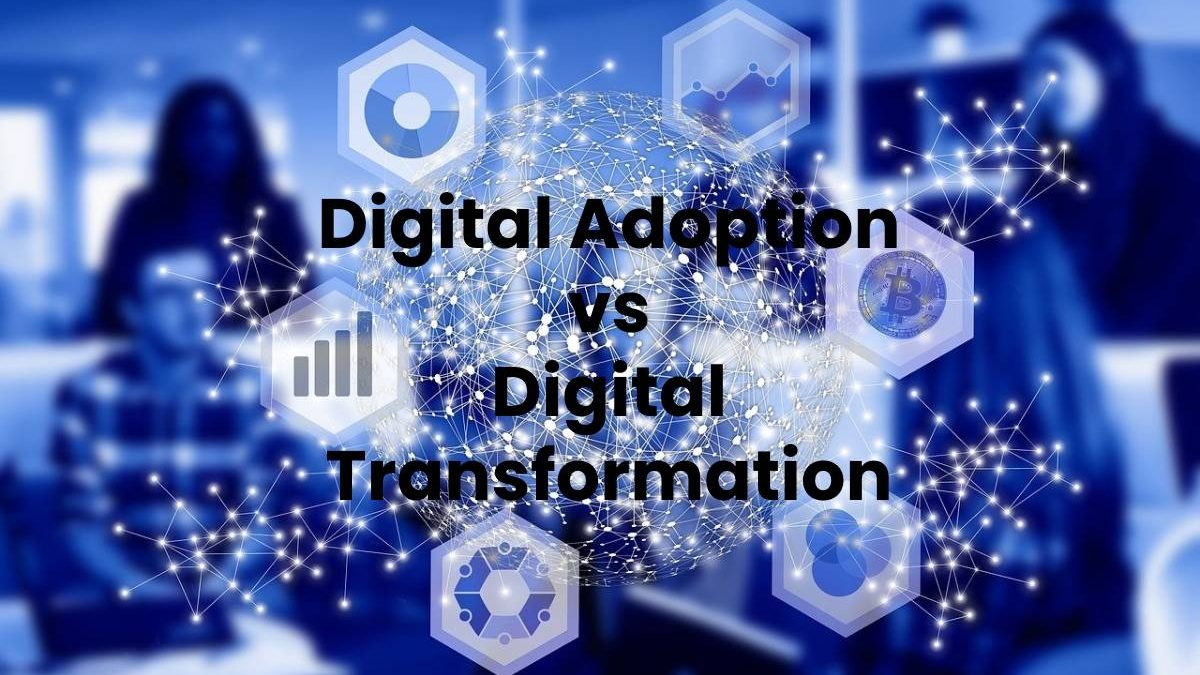Digital Adoption vs Digital Transformation
Human beings differ from other animal species by their ability to adapt. The evolution of technology strongly incentivizes this ability to adapt people, because it tends to give you more comfort and benefits in your life.
The evolution of humanity is associated with adaptability and if it were not for this condition of human beings it would not have reached the current level of development, however, we know that many sectors or peoples of the world remain in initial or primitive states. That is why it is said that the more it evolves, the more the gap widens between people with access to knowledge and those who do not.
Digital Adoption
Human behavior also has a lot to do with adoptions. Fashions and customs are what lead sectors, groups, generations, etc. to adopt and use technologies seeking to belong and participate in them.
This adaptability of people to Technology is what we can define as what is Digital Adoption, always thinking that everyone has a personal and individual experience in the subject. Different factors influence this capacity, social and economic status, age, education, access and place of residence, among many others.
The mandatory assiliation generated by the global pandemic accelerated the Digital Adoption process in people exponentially, even faster than the response that companies gave to it. Users quickly went on to take and solve their problems or formalities, online, while companies or organizations, which were not prepared, delayed their adaptation and lost spaces and market.
However, the Digital Adoption process is personal and based on the skills people can or want to acquire. This process is subject to the imprint, necessity and individuality of each, that is, that each individual develops their digital skills, in a personal and unique action plan. That is why we have a very heterogeneous and diverse group of digital knowledge and skills among people, which are essentially also associated with the characteristics and interests of them.
Companies “adapting” digitally?.
On the other hand, companies or organizations must reconvert and evolve in the face of change and face a more complex challenge than just “Digital Adapting”, but they have to transform digitally.
Clearly it is not the same to adopt transform and that is the biggest problem that companies have today. Acquiring technology and inserting it prepotently into the organization, without having a plan or project that establishes the necessary changes in processes and culture is a bad way to want the company to “adopt” technology and not to transform digitally.
The true Digital Transformation, is the one that allows to change the operation taking into account the organization, processes, structure and culture of the company so that its new proposal has value and digital penetration. Even companies born in entirely digital formats, but they do not address these concepts, also live ephemeral lives.
Digital Transformation
So let’s say Digital Transformation IT Services is the ability of companies to analyze their culture, processes, and tools to detect opportunities for improvement that allow them to reinvent themselves and take advantage of emerging technologies. Thus, through it they adapt and benefit from the market changes produced by the new business models.
That is why I say that we should not confuse Digital Adoption with Digital Transformation. One applies better to people and the other to companies. Keep in mind that an Adoption only changes the way we do something in People, while Transformation changes the way the Companies are.
To be sure, in these times, Digital Adoption of People is pushing companies or organizations to transform digitally urgently or expose the most to disappear in the short term.
Finally, we must know that the real factor of change remains the imronta of human evolution, which these days is expressed by the pandemic, but which at other times was by world wars or great discoveries such as electricity, oil, or the invention of the computer or more recently, smartphones. This creates abrupt leaps in customs and adoptions. For example, what happened in these times with school education where cell phone use was prohibited in classes, prior to the pandemic and is now imperative to use it for online classes. There is nothing to indicate that in the future this will not remain the same and faster.
Related posts
Sidebar
Recent Posts
The Rise of Legal Tech Startups: What Law Firms Need to Know
Introduction The legal profession, often rooted in tradition and resistant to change, faces a technological revolution. Legal tech startups are…
Shiba Inu vs. Dogecoin: The Battle of the Meme Coins
In the realm of cryptocurrency, there has been an ongoing battle between two popular meme coins, Shiba Inu and Dogecoin….




Review Digital Adoption vs Digital Transformation.